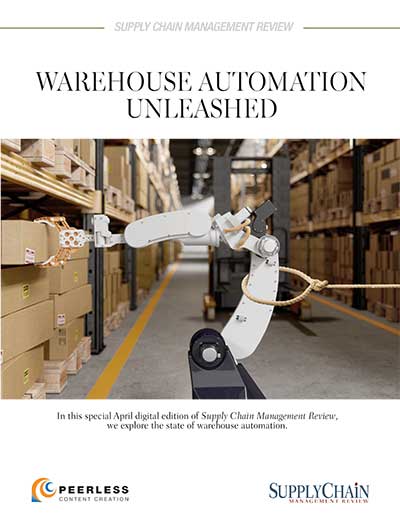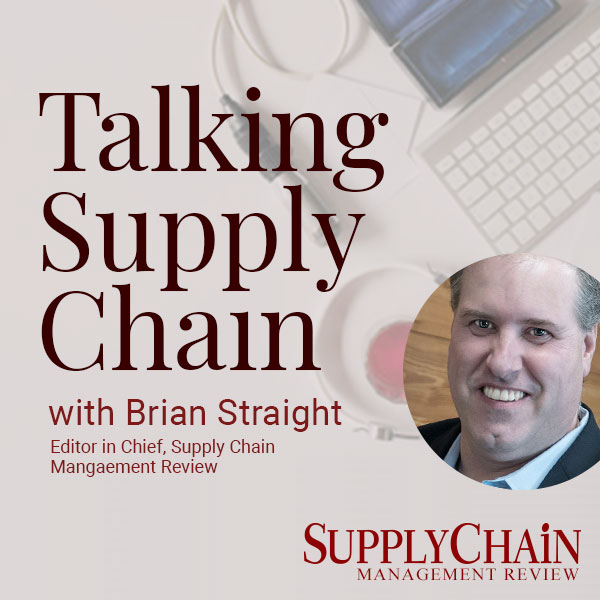This month we spoke with Tan Miller, professor and director of the Global Supply Chain Management Program at Rider University's College of Business Administration. Prior to joining Rider, Miller worked in private industry with a range of supply chain responsibilities at J&J, Pfizer, Unisys, Warner-Lambert, Mercer Management Consulting, and American Olean Tile. His most recent article for Supply Chain Management Review was Aligned and Optimized: The power of framework.
NextGen Supply Chain: I doubt that everyone will be familiar with hierarchical planning and why it's important to the supply chain. Could you start out with a capsule description of supply chain hierarchical planning?
Miller: That's a good place to start. To begin, hierarchical planning is not supply chain specific. It fits into a much broader business framework, and provides a continuous planning horizon. But that horizon is broken into three buckets.
The first bucket is strategic. It looks out two to three years or in some cases two to five years or even two to ten years. It all depends on the company and how it approaches strategic planning. The next bucket is tactical and it can run from six months to two years. However, the 12- to 18-month range is probably the most common time frame for tactical planning. And at the bottom of the hierarchy is operational planning, which runs from today to six or 12 months out.
NextGen Supply Chain: That's a great framework. Now let's drill down and connect hierarchical planning to NextGen supply chains. We hear all the time about how the rate of change is accelerating. Which kind of defies the need for planning and substitutes reacting instead. And that's probably not a good switch off. Or does it really matter?
Miller: You're absolutely right, that is not a good switch off. Planning in general doesn't go out the door based on the rate of change, whatever it is. The fact is, hierarchical planning is important to the basic blocking and tackling of any company. It manages not just operations but change. The danger, when it comes to the NextGen supply chain, is to manage it and not let it manage you or the company. But that's tough with all the data that NextGen technologies are generating.
NextGen Supply Chain: Data? Explain a little more where data fits here.
Miller: Yes. Data. As technology generates more data, we have to create ways to manage it. This is not easy. Ask anyone. Most are in a sea of data and likely overwhelmed by it. Talk about reaction mode.
The other day I was talking to a supply chain officer at a Fortune 100 company. And my question was: What is the quality of data that you have? He explained there were so many holes in data. One is the accuracy hole. Another is just having enough data where it is needed. Then there's the matter of collecting, organizing and managing the data. And finally, how to manipulate data to make it part of the decision-making process. Every single one of those facets has holes.
Quite simply, data management is not what he thinks it should be at this point - particularly the emphasis placed on assuring the quality and integrity of the data. Assuring data integrity is not a sexy responsibility that generates visibility and rewards. So, it is vulnerable to “underinvestment.” And that's at a Fortune 100 company. Just think of the holes elsewhere. It's mind boggling.
NextGen Supply Chain: It seems the implication here is that hierarchical planning needs to be part of the process of bringing in NextGen technologies and making effective use of the data created.
Miller: Exactly. It's interesting you bring this up. While the majority of companies don't use hierarchical planning explicitly, most do implicitly. Often, it's not all that formalized. However, the changes we are undergoing with NextGen technologies make it even more of an imperative to formalize hierarchcical planning. Let me explain.
To start, we can get mesmerized by the latest and greatest technology. Do that and it or they will take on a life of their own which is unlikely to support the company's strategic plan. NextGen technologies can actually wind up acting counter to how you want to run your supply chain. They have to be managed.
That means NextGen technologies, whether they are blockchain or artificial intelligence or something in between, have to be integrated with your planning scheme. You have to understand the applications and activities the technologies will support. How this will generate data and align it across a company's planning horizon. What component or components of the hierarchical planning horizon will each application support?
In other words, make everything fit together. It's worth repeating. NextGen technologies and the data they generate have to be integrated into the planning horizon so everything fits together.
NextGen Supply Chain: Honestly, that sound like a very high aspiration. What's your summary prescription for success?
Miller: The first step is to understand your supply chain's hierarchical planning framework. If you don't have one, map out all your major planning, scheduling and execution activities at the operational, tactical and strategic levels.
Understand all the links and fix any disconnects you may find. Now as you adopt any NextGen technology, explicitly plan how it fits into your existing hierarchical framework. How will it help? What components will it interface with? How will it be coordinated?
Gary Forger is special projects editor for Supply Chain Management Review. He can be reached at [email protected].
SC
MR


More Events
- Next-Gen SupplyChains: Underpinning your ability to manage complexity and drive innovation
- The Future of Supply Chains: Next-Generation Technology and Beyond
- Thanks to all who made NextGen a success
- Medline Executives’ Keynote to Kick Off NextGen Supply Chain Conference
- NextGen Supply Chain Conference 2022: About our event
- Industry Innovators Take Home 2022 NextGen Supply Chain Awards
- More Events
Latest Resources

 Explore
Explore
Topics
Software & Technology News
- Tech investments bring revenue increases, survey finds
- Survey reveals strategies for addressing supply chain, logistics labor shortages
- AI, virtual reality is bringing experiential learning into the modern age
- Humanoid robots’ place in an intralogistics smart robot strategy
- Tips for CIOs to overcome technology talent acquisition troubles
- Game on: Rethinking change management for the digital era
- More Software & Technology
Latest Software & Technology Resources

Subscribe

Supply Chain Management Review delivers the best industry content.

Editors’ Picks




